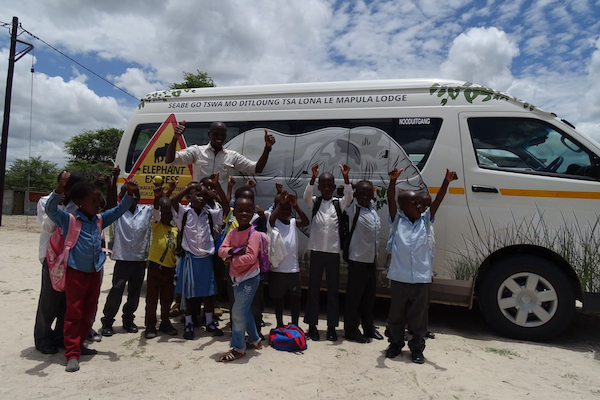
For L&D professionals, the COV- ID-19 pandemic has greatly increased the pace and importance of creating flexible learning options for people. For example, right now we are reaching out to our clients to discuss immediate concerns and offering as much flexibility as possible to ensure the health and safety of their employees, including alternatives such as virtual and digital learning.
As you may be noticing, people have a lot of emotions and assumed constraints around change. For years as part of my talks, I’ve run a little exercise that helps people surface these feelings and thoughts.
I’ll ask people to pair up and go through an exercise of secretly making changes to their appearance and then having their partner see if they can identify all the changes they made. First, I have them make five changes. In a second round, I have them make ten more changes.
People sometimes think this is an observation exercise, but it’s really a change exercise. You should see the looks on people’s faces when they are asked to change five things about their appearance―and hear the howling and complaining when they are asked to change ten more!
During the debrief I share a few observations about people’s reactions to change. See if you’ve experienced any of these:
1) People will feel awkward, ill at ease, and self-conscious. Change means doing something different and, as such, people will almost always react with some degree of discomfort. In fact, if you don’t feel awkward when you’re trying something new, you’re probably not really doing anything differently.
Be mindful of people’s feelings during this time.
2) People initially focus on what they have to give up. It’s human nature for an individual’s first reaction to a suggested change to be a personal sense of loss. To move forward, you must deal with this sense of loss. It may seem silly, but individuals need to be given a chance to mourn their losses, perhaps just by taking time to talk with others about how they feel.
Give people a chance to process what’s happening.
3) People will feel alone, even if everyone else is going through the same change. It is also human nature to have a “Why me?” attitude about change, even if everyone around you
faces the same thing. For the change to be successful, it is crucial for people to feel connected and understood. Offer the support people need.
4) People can handle only so much change. Beyond a few changes―or even just one if the change is significant―people become immobilized and less productive. The best response: Have a clear plan and strategy for focusing people’s energy on the few desired behaviours that will produce the greatest results.
5) People are at different levels of readiness for change. Although almost everyone will experience some resistance to change, some people will start get- ting excited about the change, while others will dread and resist doing anything differently for as long as they can. Anticipate that not everyone will be on the same time- table.
6) People will be concerned about having enough resources. As individuals in an organizational setting are asked to do things differently, they may perceive that since they are being asked to do more, they will need additional resources. To remain competitive in today’s markets, however, organizations must be more productive with the same or fewer resources.
Be ready to explain the need for belt-tightening.
7) People will long to revert to their old behaviour. Typically, when the focus on a change effort ends, people hope to return to what they were do- ing before. Though this behavior is natural, managers must counteract it. When we revert to old behaviours, we lose all we have learned.
Help people understand that change keeps everyone forward focused—and that’s a good thing.
Keep these seven common reactions in mind as you deal with this latest wave of change. By providing the support people need to adapt successfully, your organization can navigate this change.
Remember, you’re not alone. Make sure you reach out to others. If we can help, let us know. Together we will successfully navigate this change.





